
Last Friday and Saturday November, 3-4 Rudolf Steiner College Canada hosted our annual Waldorf Development Conference featuring Christof Wiechert as the keynote speaker. Christof worked as a Waldorf teacher in The Hague for 30 years and was head of the Pedagogical Section at the Goetheanum from 1999 to 2012. He now dedicates himself to pedagogical advising and teaching at home and abroad. We were fortunate to have Christof as guest for the second year in a row to share his lifetime of experience and study.
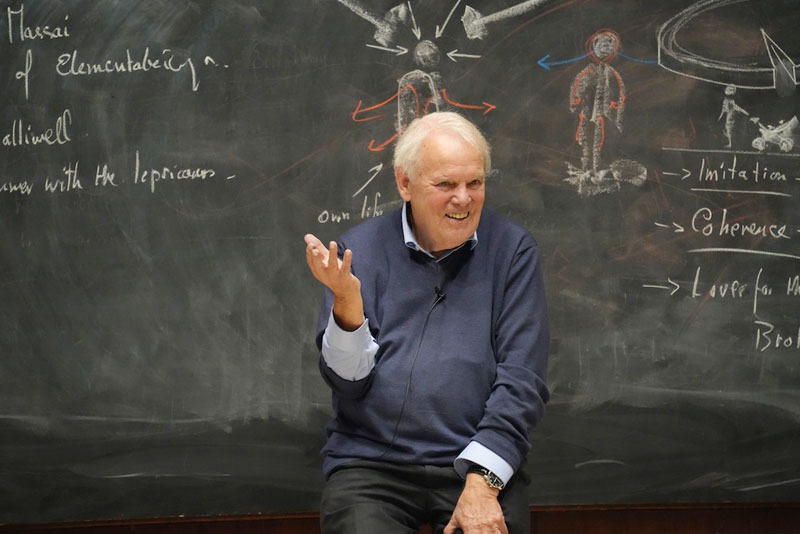
The early childhood part-time students put together a delicious soup for the early-bird supper on Friday evening to greet the early arrivals. In all there were 120 teachers present, both in person and online.
Christof brought many new insights, some going back to first principles of Waldorf pedagogy, that perhaps have not been so obvious over the last 100 years of the movement. Some, especially in answer to questions, addressed the particular challenges of teaching the children who come to our schools today.
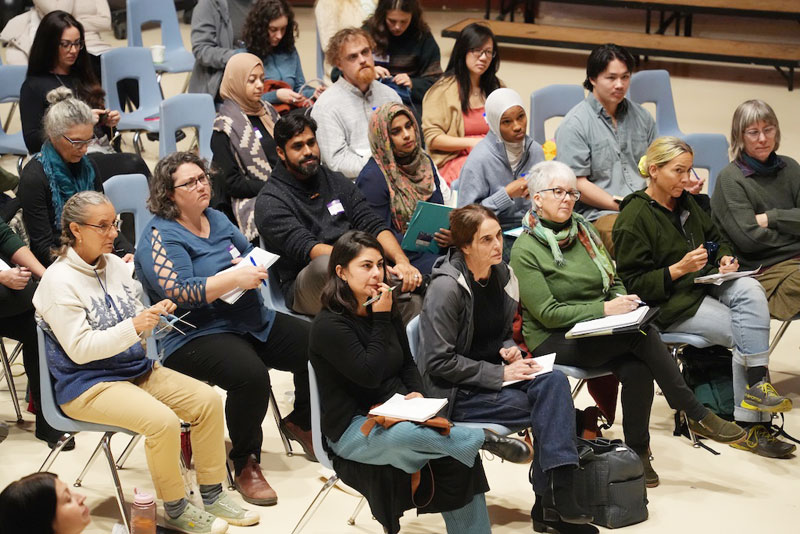
In his keynote on Friday evening, Christof spoke of anthroposophy and education emphasizing that anthroposophy is expansive, not contractive, that the purpose of anthroposophy is to expand human horizons. He noted the development of AI as a threat to our children’s human future. He spoke of the three missions of Waldorf education today and the seven aspects of the etheric body when freeing from the physical body. The goal of education is to develop thinking, character, habits and memory in children. For example, the role of memory through learning poems and songs is to anchor the identity/feeling of self of the child in their life path.
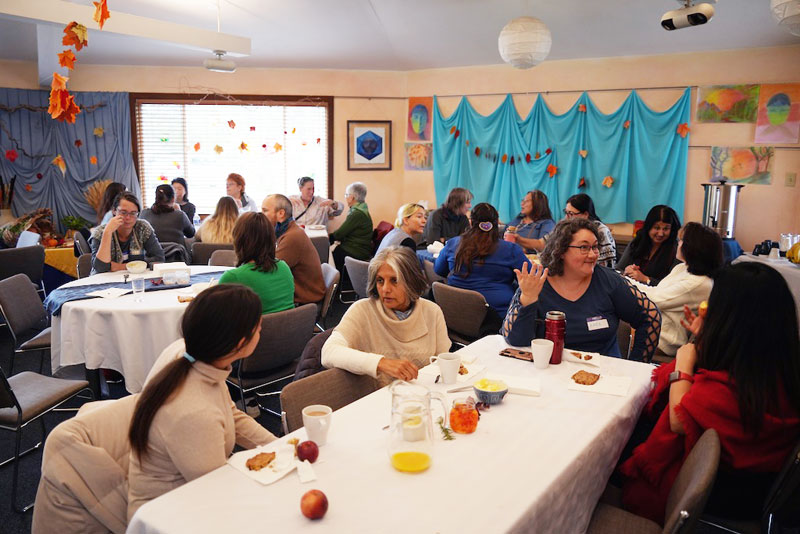
He also spoke of the importance of the integration of the spirit/soul and life/body – a process that takes 20 years of careful pedagogical consideration and application. For example – why do art? The arts integrate the human being in specific ways by bringing ideas and activity together, that is, integrating, supporting the threefold nature of the soul.
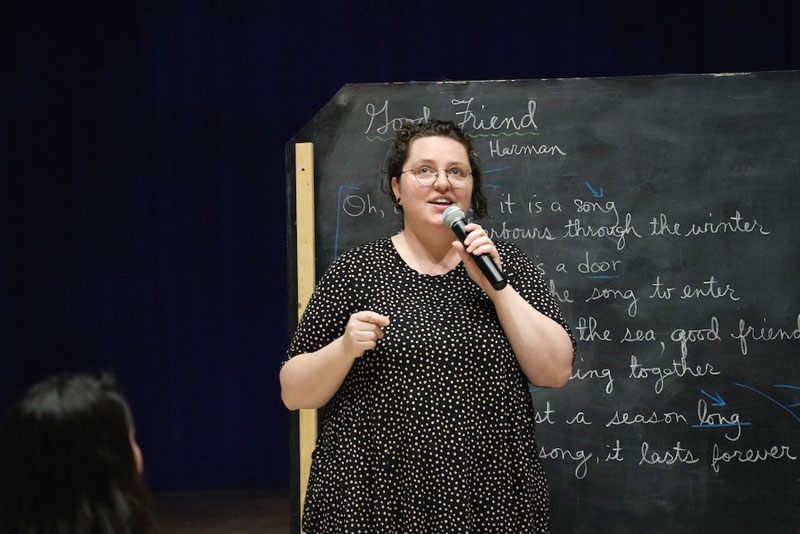
On Saturday, Christof presented the basic pedagogical principles of the Art of Good Teaching. He showed that there are subjects that deal with the past in the form of images, for example writing, and subjects that deal with the future, like dialogue and music. Finding the elusive balance between the two is to practice “good teaching”.
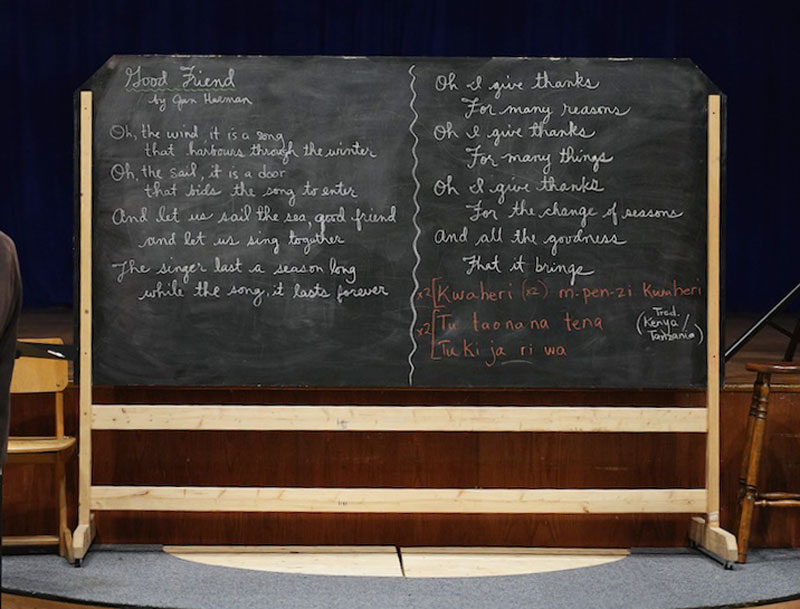
He spoke of the necessity for parent education. In Holland, for example, there are parent academies, also for class parents. He spoke of the causes of ADHD by suppressing early childhood movement and the need to provide age-appropriate pedagogical methods for young children (not intellectualism, but imitation and free play).
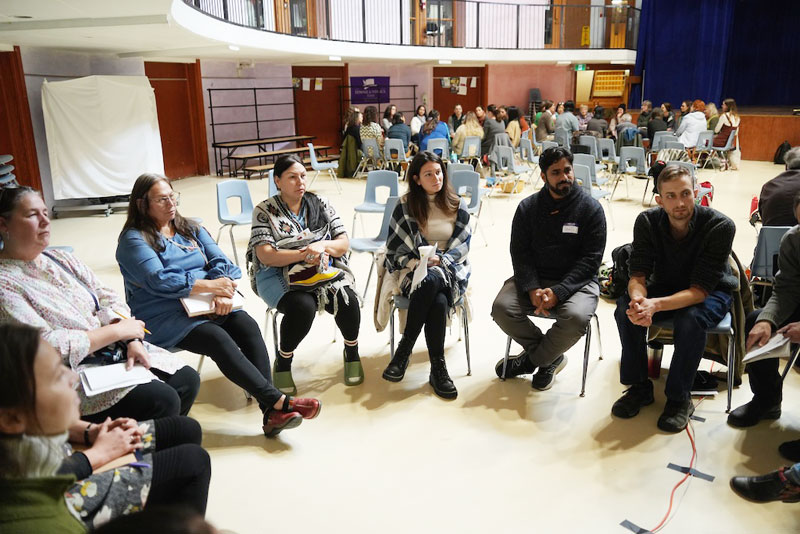
Reincarnation and karma, threshold experiences, balancing a strength in an artistic skill you bring with other activities, and the use of time and rhythm in lessons were the topics chosen for lively discussion groups. In a shared conversation Christof answered questions from the gathered teachers.
Clara’s musical introduction with singing for everyone was well received by the in-person crowd. She had even written one of the songs especially for this occasion, on her way up to the conference. Impressive!
The day ended with singing with Clara and a circle that encompassed the whole of the Toronto Waldorf School forum.
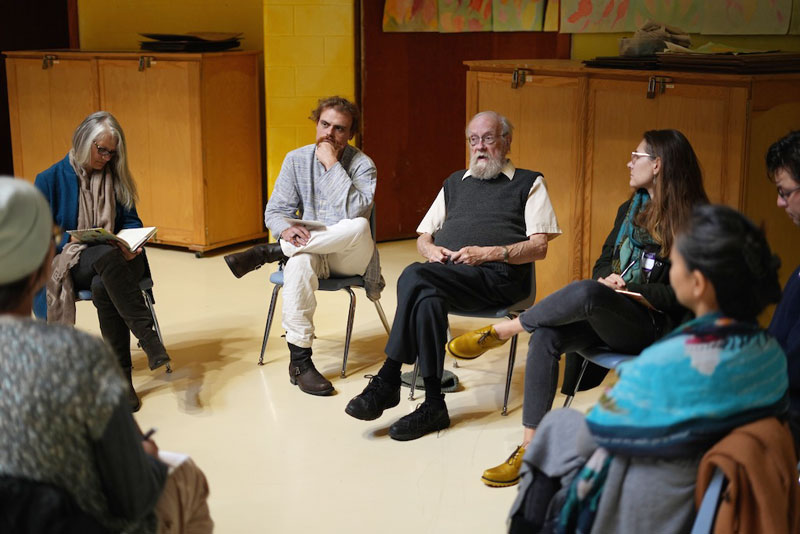
Special thanks to the Toronto Waldorf School for hosting the event in the school forum, to Karen Weyler and the early childhood teachers for preparing the delicious Friday evening supper, to Marta Bak for her seamless organization of the event, and to the full-time and early childhood students for the warm décor of the College Cafe and the nutritious refreshments served during the day.
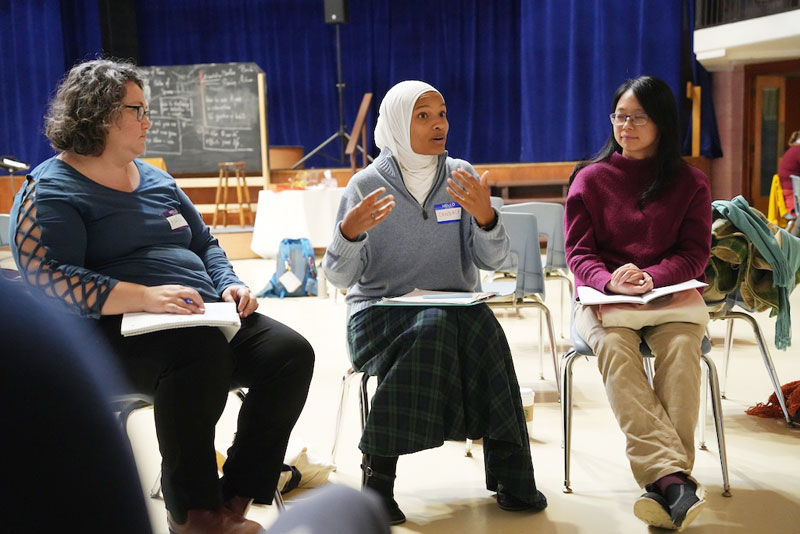
Testimonials
“It was a truly wonderful experience to be at the RSCC, for all the pedagogical and also sentimental reasons. I find myself learning and discovering other dimensions of the Waldorf philosophy, I have not encountered before. I am grateful for the teachers like Christof, and Georg Locher in the past, who bring us closer to the messages that we all seek. I know that we need to do our own, inner work which the mentors like Christof are trying to inspire within us. My gratitude for this precious experience.”
“Thank you for the wonderful conference. We went home nourished by the words of wisdom and wonderful hospitality with delicious food at the RSCC. Wishing you a beautiful rest of the fall term and Advent preparations.”
Thank you, Marta! It was wonderful and the zoom worked out well from my end!
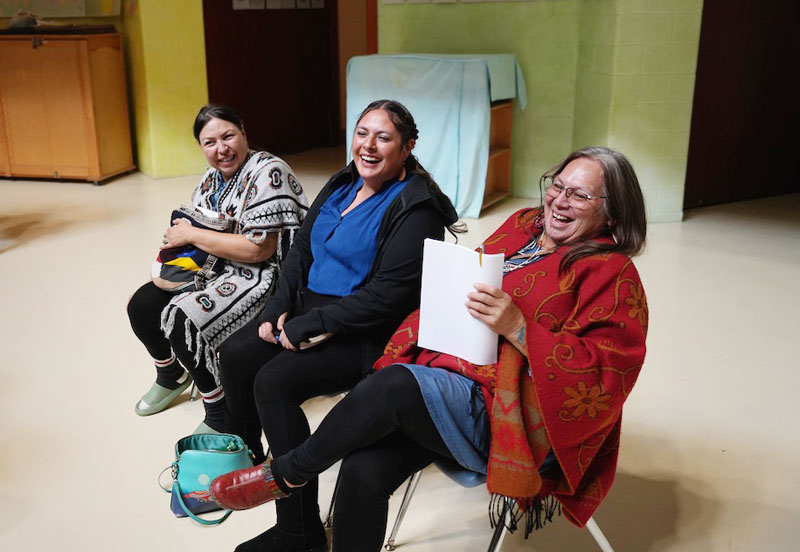
How do you plan to use what you learned?
• Everyday, especially the time and spatial sphere information
• Apply the concepts and methods to my teaching and share with fellow faculty
• How to navigate between time and space during my lessons – what subjects belong to each sphere
• I learned about the importance of mastering teaching
• To read many more books about anthroposophy and Waldorf education
• The importance of the temperaments, knowing your own and the children in your care
• This deeply foundation of basics help me re-find my compass and healed the exhaustion
• It offered a perspective wide enough for me to regard the arising issues of questions anew
• In my work with students in the classroom, taking this into my meditative work too
• How to bring integration into the classroom daily life
• To consider the flow of spatial and time spheres in a kindergarten rhythm
• The language of spatial versus time was a way of thinking about types of lessons and balancing them. The overall idea was not new I guess but it was simplified and digestible.
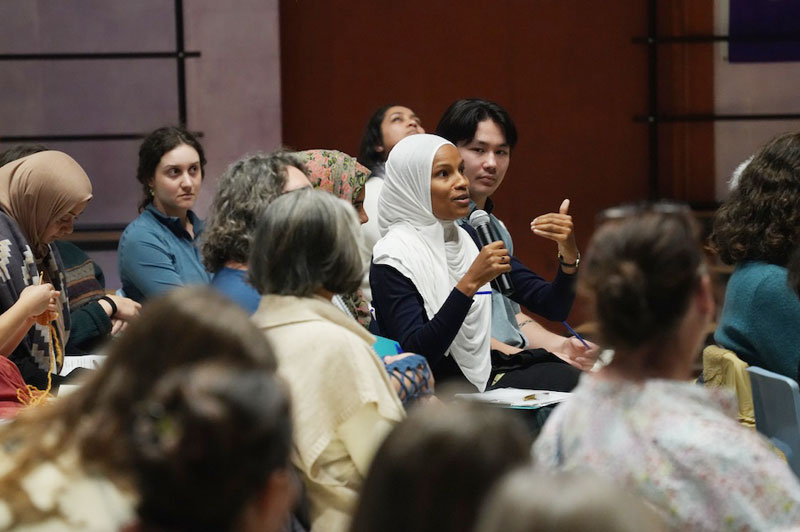
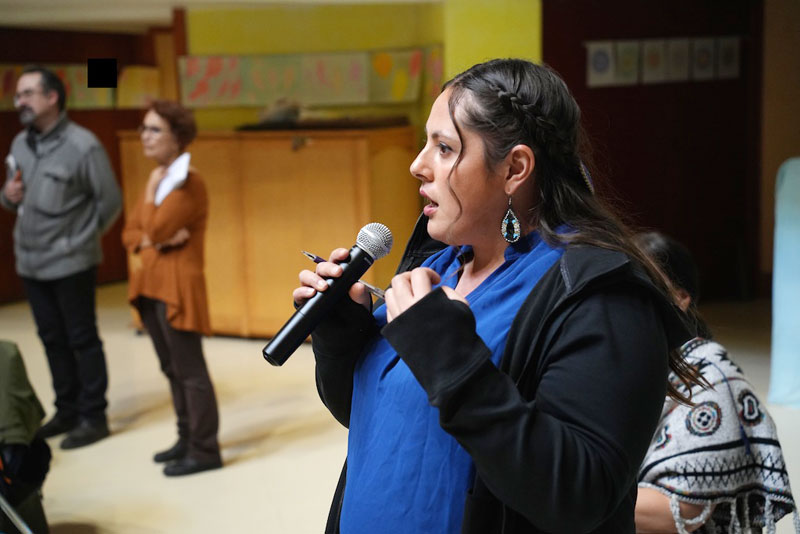
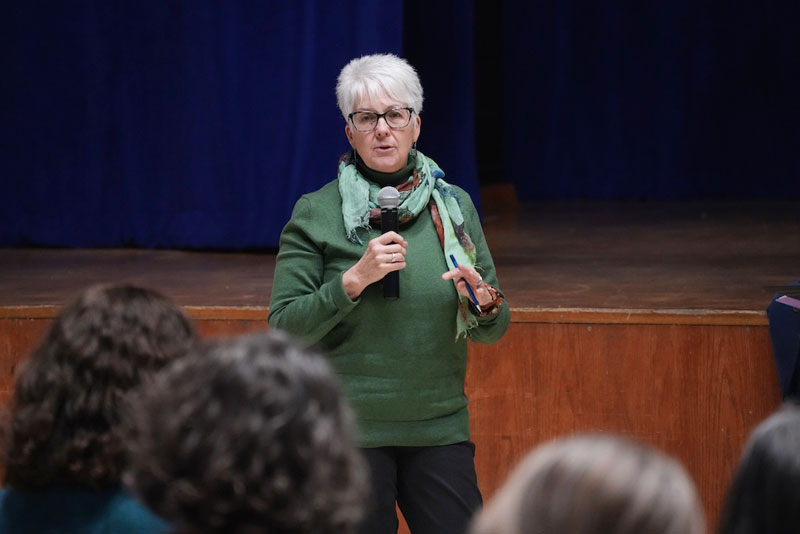
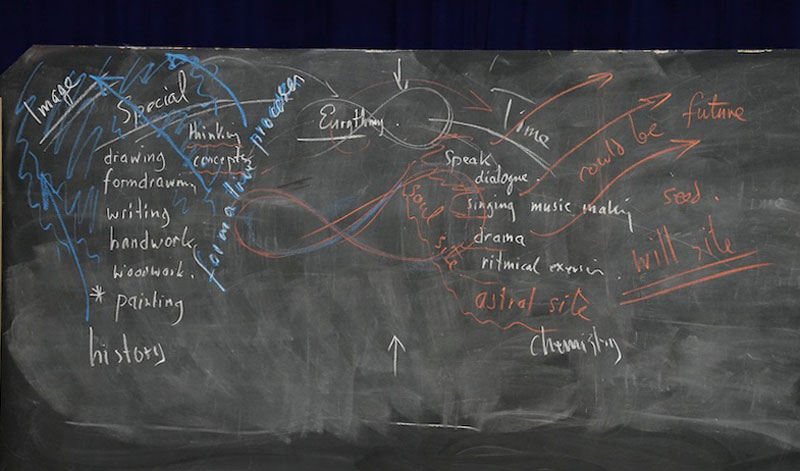
The video recordings from the conference will be part of the online course we’ll be putting together for the new year featuring material from several different expert teachers: “Deepening Waldorf Practice: Four Experienced Teachers Share Their Insights”
For our current online course “Anthroposophy: An Introduction”, please go to https://rscc.ca/online/

Recent Comments